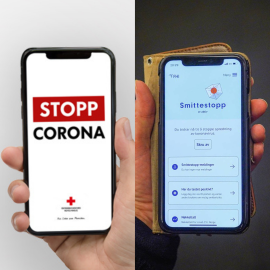Citizenship by design - How technological standards determine health policies
A joint study by Ingrid Metzler of the Department of Bioethics and Ethics in Medicine at Karl Landsteiner University of Health Sciences (KL) and Heidrun Ån of the Norwegian University of Science and Technology uses the Corona contact-tracking apps in Austria and Norway to highlight the role of technology in shaping health policy measures.

In their article in the journal Policy and Politics, the two researchers trace the societal debates of the development and launch of the apps in Austria and Norway. While in Austria the Stopp Corona app was developed solely as a tool to break chains of infection, in Norway the Smittestopp app was additionally intended to collect data on the spread of infection for research. In both countries, the social discussion was dominated by privacy concerns. Ultimately, the technological requirements of Apple and Google proved decisive in the design of the apps. In Austria as well as in Norway the apps were implemented within the framework of the "Google/Apple Exposure Notification" (GAEN). Among others, the applied privacy policies preclude the disclosure of data to authorities from the outset. Therefore the functional scope of the Norwegian app had to be adapted. The collection of data on the spread of the infection for research had to be abondened. The example shows how technological standards strongly determine the design of political measures. The two authors speak of "citizenship by design" to describe how citizens' rights and duties, traditionally enshrined in constitutions, are defined and embodied by technologies.
Metzler, I. and H. Åm (2022). "How the governance of and through digital contact tracing technologies shapes geographies of power." Policy & Politics.




